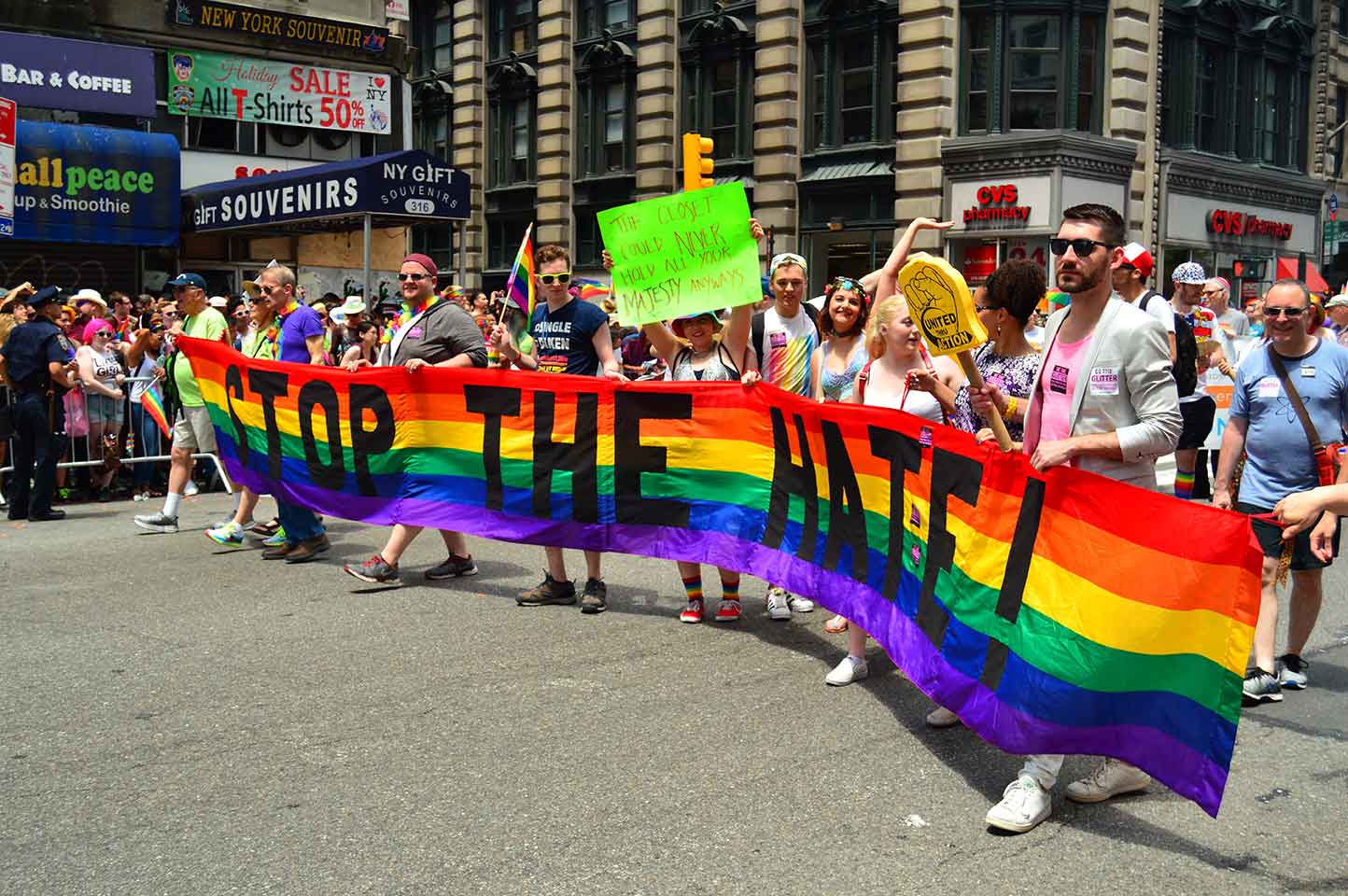
Marchers in the Gay Pride Parade in New York City, June 2017. Photo by Kirkikis via iStock
Marchers in the Gay Pride Parade in New York City, June 2017. Photo by Kirkikis via iStock
The U.S. Supreme Court on June 4 sided with a baker in Lakewood, Colo. who refused to create a wedding cake for a same-sex couple. Masterpiece Cakeshop turned away Dave Mullins and Charlie Craig because they’re gay; owner Jack Phillips said making the cake would violate his religious beliefs.
The court took issue with the way the Colorado Civil Rights Commission handled the case when it decided that the bakery had violated the state’s nondiscrimination law.
But the court’s decision does not mean that businesses can deny services to gay, lesbian, bisexual or transgender customers. The decision made clear that businesses who discriminate against gay customers can run afoul of Colorado’s nondiscrimination law. Justice Anthony Kennedy, who wrote the majority decision, specified:
“Our society has come to the recognition that gay persons and gay couples cannot be treated as social outcasts or as inferior in dignity and worth. For that reason the laws and the Constitution can, and in some instances must, protect them in the exercise of their civil rights. The exercise of their freedom on terms equal to others must be given great weight and respect by the courts.”
The quality and longevity of a life depend in no small part on whether a person is treated with dignity and respect, and is given the social and economic opportunities that allow good health.
LGBTQ civil rights activists have fought hard for access to the same constitutional rights as all Americans. Those rights—the right to marry, to get and keep a job, and to walk into a school or a place of business without being discriminated against—are not privileges. They’re essential to the health of our communities. And they are here to stay.